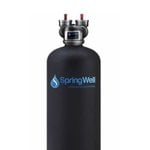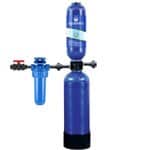You’ve seen the highlights — now let’s break down what these systems are actually like to live with.
Salt-free conditioners don’t remove hardness minerals. They change how those minerals behave, which means performance can be harder to measure — and easier to overhype.
So we focused less on specs and more on real-world use: water pressure, upkeep, and whether scale actually backs off.
Some are truly low-fuss. Others give you more control. Here’s how they stack up when it comes to everyday life — not just what’s on the label.
Expert Picks
- Highly Recommended: Springwell FutureSoft
- Cartridge Based: Kind E-2000
- Second Best: Aquasana EQ
- Great Value: Softpro Elite
- Dual-Function: Crystal Quest
- Optimal for Well Water: GreenWave
#1 SpringWell FutureSoft —Editor’s Pick
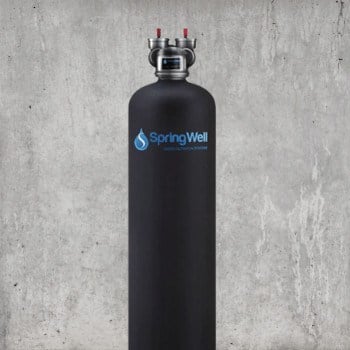
Scoring basis
- Scale Prevention (45%): crystallizes hardness minerals
- strong real-world scale drop
- Flow/Pressure (20%): no flow loss
- verified on same tank design as CF1
- Install/Maint (10%): no salt, drain, or power needed
- minimal upkeep
- Build Quality (10%): durable tank + media
- silent operation
- Operating Cost (5%), Warranty (5%), Transparency (5%)
Looking to ditch the salt without giving up performance? The SpringWell FS1 makes it easy. It treats hard water using proven TAC media that helps stop scale without relying on salt, power, or complex upkeep.
You’ll notice the difference where it counts: fewer spots on fixtures, better showers, and less wear on your plumbing — all in a system that’s built to last and easy to forget about (in a good way).
One homeowner put it simply:“Clearer fixtures and fewer spots after just a couple weeks. Install was easy — and no more salt bags.”
💡 Key Features:
- 🌀 TAC Media Conditioning – Prevents scale buildup without removing healthy minerals
- 🧰 No Salt, No Electricity – Truly maintenance-free design
- 🚿 Consistent Flow – Delivers 12–20 GPM depending on configuration
- 🧑🔧 DIY-Friendly Setup – Quick-connect kit makes install a breeze
- ♻️ Eco-Safe & Efficient – Reduces waste, perfect for sustainability-focused homes
Use Coupon Code: QWL5 to save
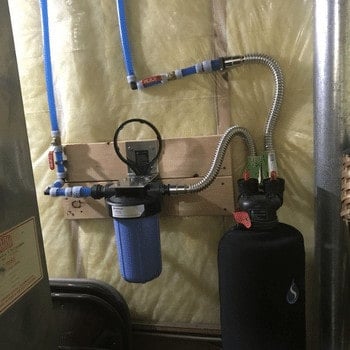
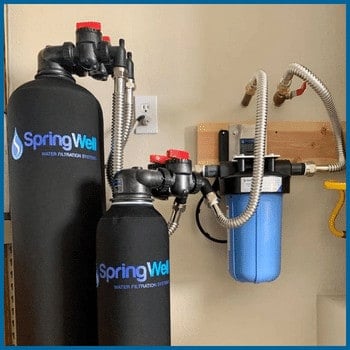
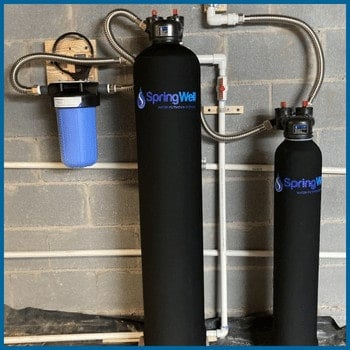
💡 Here’s the deal: If your fixtures are always foggy or your skin feels dry no matter how much you moisturize, the FS1 offers a low-effort way to get ahead of the problem. You won’t see dramatic changes overnight—but give it a few weeks, and things start to feel easier: less scrubbing, better showers, and no weird slippery water.
⚠️ Heads-up: It doesn’t pull minerals out—it neutralizes them. That works well for municipal water, but if you’re battling serious hardness (12+ GPG), you’ll likely need a salt-based softener like the SpringWell SS1 to stay ahead of scale.
✅ Pros:
- 🔧 “Set it and forget it” actually means something: No salt. No backwashing. No reprogramming after outages. Just install it — and weeks later realize your dishwasher hasn’t needed vinegar.
- 🚿 No weird water feel: Water feels clean, not slippery. You don’t think about it — until you shower elsewhere and instantly notice the difference.
- 🛠️ DIYers don’t get burned: Surprisingly simple to install. Clear layout, decent hose quality, and no oddball fittings. You don’t have to be a plumber to pull it off.
- 🚫 Scale stops showing up: Faucets stay clean, appliances last longer, even humidifiers behave. You’ll see the difference in places you used to ignore.
- 🌀 Quiet win for high-flow homes: This thing keeps up. No pressure drop, even with multiple showers running. That 12–20 GPM rating isn’t just for show.
❌ Cons
- 💰 Price might make you wince It’s not cheap — and it’s not pretending to be. But most say you get what you pay for in reliability and results.
- 🧂 Not a “soft” softener It doesn’t remove minerals. If you’re used to that slick skin feel from salt systems, this is a different experience — cleaner, not silkier.
- 🛠️ Not built with wells in mind It handles city water like a pro, but if your well’s loaded with iron, you’ll likely need pre-treatment to keep things running smooth.
💬 Customer Insight“ After a few weeks, our fixtures looked cleaner and our skin felt better — no slick, soapy feel like we had with other systems. We’re on a low-yield well, so avoiding water waste was huge. SpringWell made everything easy.”
— Thurston T., verified buyer (06/07/22)
🆕 SpringWell FS1 Product Updates
- ✅ UV add-on now compatible (2024) — 15 GPM flow with 30 mJ/cm² UV protection
- 🧰 Quick-connect install kit added (mid-2023) — simplifies DIY installs, no soldering needed
- 📦 Packaging upgrade (late 2023) — fewer damaged parts, faster unboxing
- 🧪 Refined TAC media (2024 update) — improved scale prevention, better efficiency over time
#2 Kind E-2000 – Runner Up
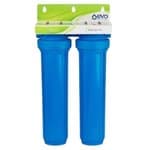
Scoring basis
- Scale Prevention (40%): TAC media with NSF certification
- reliable scale reduction under city water conditions
- Flow/Pressure (20%): true 15 GPM rating
- supports 3–4 bath homes without choking flow
- Install/Maint (15%): prefilter included
- no drain line
- cartridges easy to replace
- Build Quality (10%): solid dual-cartridge housings
- compact design fits small spaces
- Cost (5%), Warranty (5%), Transparency (5%)
If you’re done fiddling with complicated systems, the Kind E-2000 makes water conditioning simple. It skips the salt, skips the electricity, and skips the guesswork — just effective scale prevention with almost zero hassle.
With built-in sediment filtration, solid construction, and a generous 15 GPM flow rate, it’s built for families who want reliable results without overengineering.
🛠️ One homeowner put it simply: “Install took less than an hour, and suddenly our glasses stopped spotting and showers felt cleaner. No salt, no nonsense.”
💡Features
- 🔄 Permanent media — no refills or breakdown
- 🧃 Built-in sediment filter (no add-ons needed)
- 🚿 True 15 GPM flow rate holds under pressure
- 🌱 Salt-free & chemical-free conditioning
- 🛠️ Easy install with no drain line required

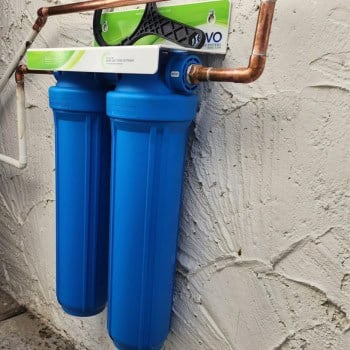
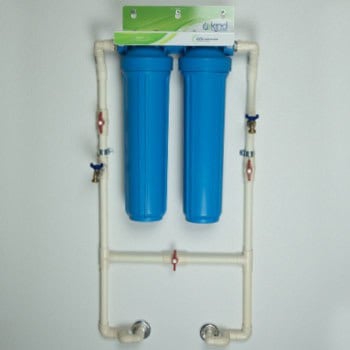
💡 Here’s the deal: You won’t find bells and whistles here — and that’s the point. The E-2000 is for homeowners who just want to stop scale from slowly wrecking appliances without overhauling their plumbing or messing with salt.
⚠️ Heads-up: It’s a conditioner — not a softener — so minerals stay in the water, just in a form that’s less likely to stick. It’s rated for extreme hardness (up to 75 GPG), but like most salt-free systems, it shines most in city water conditions. If you’re expecting full mineral removal, this won’t deliver that.
✅ Pros
- 🧼 You stop buying CLR and dishwasher boosters: Limescale buildup quietly disappears — not just in pipes, but in places you’re always scrubbing: glass shower doors, faucets, humidifiers, and inside appliances. Many users say they realized it was working when they stopped cleaning as often.
- 📦 Zero cartridge drama — even years later: Unlike some systems with hard-to-find replacements, Kind ships media based on your actual usage — and it shows up before performance ever drops. Owners love that there’s no scrambling to figure out when or how to replace anything.
- 📱 Surprisingly modern support experience: Kind’s portal actually works. You can see your system specs, get replacement schedules, and chat with support — no phone tag, no clunky manuals. For something that “just sits there,” it has Apple-level polish on the backend.
- 🪶 Unusually lightweight for what it does: It’s built solid, but it’s not a back-breaker. You don’t need two people to move it, and it’s easy to reposition during install or even after the fact if you redo plumbing.
- 🔁 Ideal for second homes or part-time occupancy: Since there’s no regeneration or idle cycling, it doesn’t mind sitting unused. Great for vacation homes or snowbirds — users say it picks up right where it left off, no resets or restarts needed.
❌ Cons
- It doesn’t play nice with extreme hardness: Kind rates this up to 75 GPG, but users in the 20+ GPG range often say results are mixed. If your scale buildup borders on concrete, this system may not be enough on its own.
- The media isn’t truly “lifetime”: While it lasts longer than most, it’s not permanent. You’re on a replacement cycle — even if it’s seamless. Some buyers expected a true set-it-and-forget-it system without any replenishment costs.
- No visual indicator it’s working: No lights, no gauges, no soft water “feel.” If you’re the type who likes visual confirmation, this system can feel invisible — until you realize your fixtures are staying clean.
💬 Customer Insight: “I used to haul 40lb salt bags for years — plus we still bought bottled water because our old softener wasn’t cutting it. Switched to Kind and it’s night and day. Better water, no more heavy lifting, and the price was way better than anything else I looked at.” — Brian J., verified buyer
#3 Aquasana
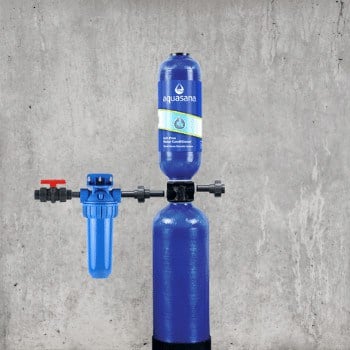
Scoring basis
- Scale Prevention (35%): NAC media reduces visible limescale on fixtures at moderate hardness
- Flow/Pressure (20%): rated 7 GPM
- adequate for smaller homes but lags in high demand
- Install/Maint (15%): ships complete with prefilter
- no salt or electricity needed
- Build Quality (10%): compact one-tank design
- straightforward install
- Operating Cost (5%), Warranty (5%), Transparency (5%)
If you’re over salt systems and their constant upkeep, the Aquasana EQ keeps things refreshingly simple. No electricity, no timers, no brine tank — just steady scale protection that doesn’t ask much in return.
It uses proven NAC media and ships with a built-in pre-filter, so you’re not piecing together a system from parts. For city water under 25 GPG, it gets the job done quietly in the background.
🛠️ One homeowner put it like this: “What I noticed wasn’t dramatic — it was gradual. Less spotting, fewer clogged aerators, and I stopped having to soak showerheads in vinegar every month.”
💡Features
- 🌀 NAC media — Conditions water to reduce scale without stripping healthy minerals
- 🧃 Includes sediment pre-filter — Saves you from buying add-ons out of the gate
- 🚿 7 GPM flow rate — Solid for most homes, but may lag with heavy demand
- 🔌 No salt or power required — Just install it and let it do its thing
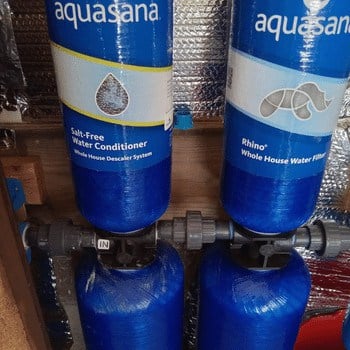
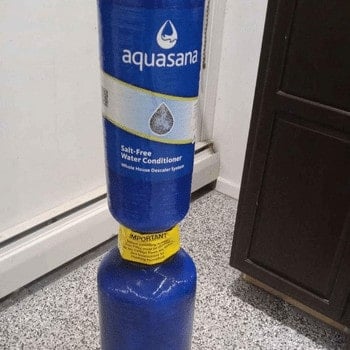
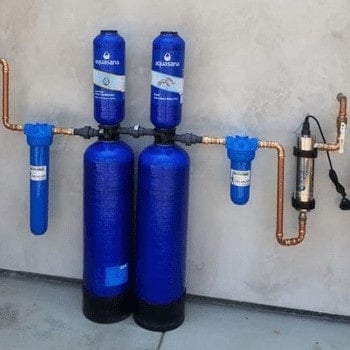
💡Here’s the deal: The Aquasana EQ is a solid pick if your city water isn’t crazy hard and you want to stop scale without adding more to your weekend to-do list. It’s not flashy, but it’s consistent — and the included pre-filter makes it feel like a complete system, not a puzzle you have to build yourself.
⚠️ Just know what you’re getting: it conditions minerals, it doesn’t remove them. If your hardness is over 25 GPG, or you’re hoping for that soft-water skin feel, this probably isn’t your match. But for moderate hardness and minimal fuss? It delivers.
✅ Pros:
- 🧃 You don’t have to piece it together: Unlike other systems that nickel-and-dime you with pre-filters and housings, this one ships ready. Filter included, fittings included — no last-minute hardware store runs.
- 🧽 Scale fades without babysitting it: It won’t eliminate hardness, but it cuts scale where it counts: fewer spots on fixtures, cleaner glassware, and showerheads that stop getting crusty every month.
- 📉 No salt, no cycles, no spike in water use: Because there’s no regeneration, it won’t blast water down the drain at 2 a.m. It just runs. You won’t see usage spikes or need to babysit timers during power outages.
- 📦 A real warranty for once — if installed right: Aquasana backs it for 6 years, which is generous for this category. Just make sure it’s pro-installed if you want the coverage to stick.
- 💵 Doesn’t feel like a downgrade from salt: You don’t get that soft water slickness, but you also don’t get the mess. Owners say they don’t miss hauling salt, and their appliances are happier for it.
❌ Cons:
- Not built for high hardness: Once you creep past 20–25 GPG, results get inconsistent. It’s a conditioner, not a miracle worker — scale may still sneak through if your water’s extra tough.
- Warranty comes with a catch: That 6-year coverage sounds great, but it only holds if a licensed pro installs it. DIY it, and you’re technically out of luck if something fails.
💬 Customer Insight: “I installed it myself — I’ve got plumbing experience — and it took about an hour. No leaks, but you’ve got to be precise. After a month, scale’s easing up, and the pre-filter’s catching more than I expected. Solid performance so far, and definitely worth it for the price.” — Michael M., verified buyer
🆕 Aquasana EQ Product Updates
- No major design or performance updates have been rolled out in recent years. The system remains unchanged — which may be a plus if you’re looking for something proven and stable.
#4 SoftPro Elite
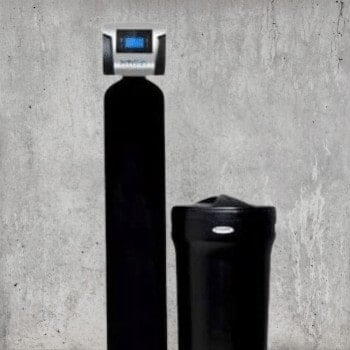
Scoring basis
- Scale Prevention (35%): NAC media reduces scale at moderate hardness
- good results on city water
- Flow/Pressure (20%): 12 GPM rating supports 2–3 bath homes
- no noticeable drop reported
- Install/Maint (15%): includes sediment prefilter
- simple cartridge replacement
- Build Quality (10%): straightforward tank + housing design
- reliable warranty support
- Cost (5%), Warranty (5%), Transparency (5%)
If you’re looking for a salt-free system that covers the basics well without inflating the price, the SoftPro Elite checks a lot of boxes. It includes a pre-sediment filter out of the box (a nice bonus most skip), uses reliable NAC media to prevent scale, and comes backed by a lifetime warranty — all for well under $1,500.
There’s no fancy digital valve here — and that’s the point. Fewer parts to fail, fewer things to fiddle with. Just steady performance for smaller homes with moderate city water, especially if you want cleaner fixtures and less wear on appliances without going full high-end.
🛠️ One homeowner put it like this: “The pre-filter was a big plus — no guessing if I needed to add one. After a few weeks, the faucets stayed cleaner and we weren’t scrubbing off scale like before.”
💡Features
- 🧃 Pre-sediment filter included — Protects media from clogging
- 🌀 NAC media — Converts minerals to scale-resistant crystals
- 🚿 12 GPM flow rate — Supports multi-tap household use
- 🧰 No salt or drain line needed — Simple in/out install
- 🔧 Expandable setup — Easy to pair with filters later
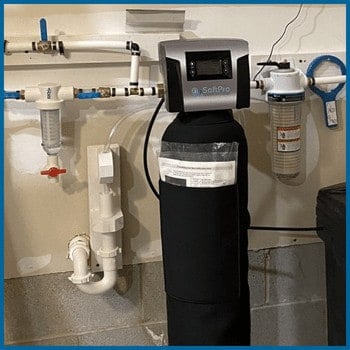
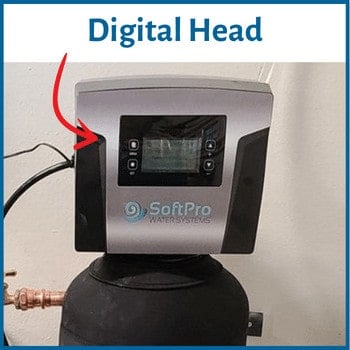
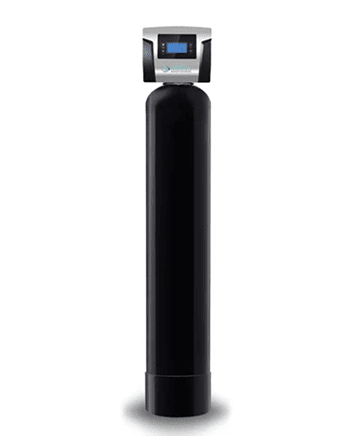
💡Here’s the deal: SoftPro Elite doesn’t try to impress with extras — and that’s exactly why people like it. It shows up with what you need (pre-filter, solid flow, no salt) and leaves the rest up to you. Want to add carbon filtration later? Easy. Want to just stop scale without touching your plumbing again? Done. It’s not the highest spec’d system on the list, but it might be the most practical.
⚠️ Heads-up: This is a conditioner, not a full filtration system. It won’t touch chlorine, and it’s not designed for well water or heavy contamination. If your water has a strong smell, high iron, or you’re chasing that “clean taste,” you’re probably better off looking at something like the SpringWell FutureSoft or pairing SoftPro with a carbon filter.
✅ Pros:
- 🧃 You don’t get nickeled and dimed: It comes with the pre-filter, bracket, and fittings — no surprise add-ons just to make it work out of the box.
- 💸 Budget system that doesn’t feel cheap: It’s one of the lowest-cost systems with a lifetime warranty and solid flow. Build quality is basic but doesn’t feel disposable.
- 📦 Fits into future upgrades easily: Plenty of owners start with this and bolt on carbon filtration or RO later. No need to commit to a $2,000+ setup from day one.
- 🪛 Compact enough for tight installs: Doesn’t hog floor space like multi-tank setups. Ideal for garages, closets, or tight utility corners.
- 📈 Media holds up longer than expected: No early performance drop-off. Most users don’t even think about it until year two — and still say it’s working fine.
❌ Cons
- 🔕 No visual cue that it’s working: There’s no meter, no screen, no soft water “feel” — so it kind of disappears into the wall. Some users second-guess it early on until they see less scale weeks later.
- 📏 Not built for bigger households: With a 12 GPM flow, it handles 1–2 bathrooms just fine — but homes with 3+ full baths may notice pressure drop if too many taps are open.
- ⚠️ Won’t help if your water tastes bad: This is scale protection only. If your water smells like chlorine or tastes off, this won’t change that — and might leave some buyers underwhelmed if they didn’t read the fine print.
💬 Customer Insight: “We have fairly hard water from the city supply. We wanted a no-salt system and found SoftPro Elite to be a fantastic choice — it’s super easy to install and operate, and effectively manages our water hardness without any build-up issues!”
— Virginia R., verified buyer (5/23)
#5 Crystal Quest
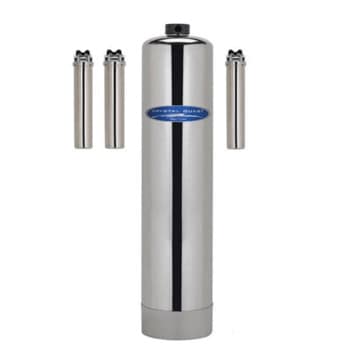
Scoring basis
- Scale Prevention (35%): TAC media neutralizes hardness minerals
- effective up to 25 GPG
- Flow/Pressure (20%): rated 12 GPM
- keeps up in most mid-size households
- Install/Maint (10%): more complex setup
- multiple filters with staggered replacement cycles
- Build Quality (10%): heavier tank + cartridge mix
- designed with well water in mind
- Multi-Stage Filtration (5%), Cost (5%), Transparency (5%)
If you’re on well water and need more than basic scale control, Crystal Quest brings more to the table. It conditions minerals like other systems — but also helps catch sediment, chlorine, and even some biological stuff that’s more common in private wells.
It’s not the cheapest or simplest system to install, but if your water has a mix of issues, this setup gives you a shot at solving more of them in one go — without needing salt or stacking a bunch of filters.
🛠️ One homeowner put it like this: “We’re on a well, and this handled more than just scale. The water’s clearer now, and we’re not scrubbing the fixtures as much.“
💡Features
- 🌀 TAC media — Neutralizes hardness minerals to reduce scale
- 🧃 Multi-stage filtration — Targets sediment, chlorine, and more
- 🧫 Includes ultrafiltration membrane — Helps remove biological contaminants
- 🛠️ One-tank + pre-filter setup — Simple layout despite added protection
- 💧 12 GPM flow rate — Keeps up with mid-to-large homes
💡Here’s the deal: If your water’s giving you more trouble than just hard minerals, Crystal Quest is worth a look. It conditions with TAC, but also filters out sediment, chlorine, and even some microbes — making it a smart fit for well systems or rural setups. It’s more involved than most conditioners, but that’s the tradeoff for more coverage.
⚠️Heads-up: This isn’t your quick-connect, weekend DIY project. Between the size, filter changes, and less common parts, it’s better suited to folks who don’t mind occasional upkeep — or letting a plumber handle it.Pros:
✅ Pros:
- 🧃 Filters more than just minerals: Most conditioners stop at scale. This one grabs sediment, chlorine, and even traces of bacteria — great if your water looks or smells off.
- 🧫 Ultrafiltration is built in: Rare in this price range, the 0.2-micron membrane offers an added layer of protection that well owners often end up needing anyway.
- 🔁 Reduces the need for multiple systems: Some users ditch their old sediment and carbon filters after switching — one tank handles what used to take three.
- 🏡 A real fit for rural setups: Most conditioners assume city water. This one’s clearly built for wells — and holds up even with some gunk in the supply.
- 🔧 No electric, no backwash: Despite the extra stages, it stays salt-free and low maintenance — no drain line, no power, no noisy regeneration cycles.
❌ Cons
- 🛠️ Install isn’t beginner-friendly: Between the size, filter housing, and UF membrane, most folks will want a pro to set it up — especially on well systems.
- 🔄 Filter changes aren’t one-size-fits-all: With multiple cartridges inside, each has a different lifespan. That means staggered replacements — and more tracking over time.
- 📦 Parts availability can be hit-or-miss: Replacements aren’t always stocked locally. Expect to order direct or wait on shipping, especially for the ultrafiltration stage.
💬 Customer Insight: “The salt-free conditioner delivered soft water as soon as it was connected. The included plastic fittings were useless, though — I swapped in brass nipples and it worked great. Space-saving and no salt container needed.” — Verified buyer
#6 GreenWave
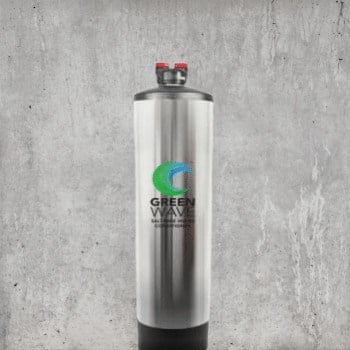
Scoring basis
- Scale Prevention (40%): SP3 media handles extreme hardness
- verified 70+ GPG performance
- Flow/Pressure (20%): supports up to 25 GPM
- built for large multi-bath homes
- Install/Maint (10%): one-tank system
- no filters or drain
- media lasts 5–10 years
- Build Quality (10%): tall tank design
- proven SP3 media certifications (NSF/DVGW/WRAS)
- Operating Cost (5%), Warranty (5%), Transparency (5%)
If you want high flow and low fuss, GreenWave stands out. It uses premium Filtersorb SP3 media and handles higher hardness levels without messing with your water pressure — even in larger homes. No cartridges to swap, no filter add-ons to manage — just a single-purpose system that gets out of the way.
🛠️ One homeowner put it like this: “It’s not flashy, but it’s fast and just runs. Haven’t thought about it since install.”
💡Features
- 🌀 Filtersorb SP3 media — Crystallizes minerals to prevent scale
- 🚿 High-flow design — Supports homes with 3+ bathrooms
- 🧱 One-tank, one-purpose — No filters or cartridges to manage
- 🔇 Silent operation — No noise, no cycles, no maintenance
- 🔧 Simple in/out install — No drain or electric required
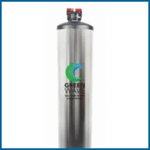
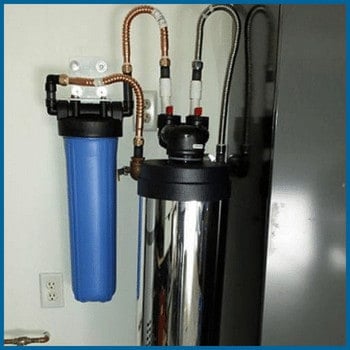
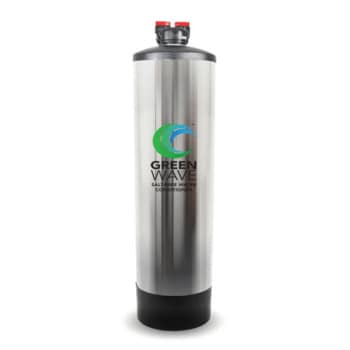
💡Here’s the deal: GreenWave’s a good pick if you just want scale protection that doesn’t mess with water flow. It’s not trying to be an all-in-one filter or tech upgrade — it’s just big, simple, and does its job without slowing anything down.
⚠️Heads-up: This unit’s not made for add-ons, so if you need chlorine or sediment filtration later, you’ll need to run that separately. And fair warning — the tank’s bigger than most, so make sure you’ve got space before you order.
✅ Pros:
- 🌋 Outperforms in extreme hardness zones: Unlike most conditioners that top out at 25–40 GPG, this one holds its own well into the 70s — and users in high-scale areas back that up.
- 🛑 A set-it-and-walk-away system — for real: No filters to clog, no flow loss over time, no tuning or touch-ups. Owners report multi-year runs without needing to even look at it.
- 🌍 Media quality that’s internationally validated: Filtersorb SP3 isn’t just another private label — it’s backed by NSF, DVGW, and WRAS testing for actual scale prevention.
- 🚿 Doesn’t need pre-filtration to work well: In many municipal setups, this conditioner runs clean without requiring sediment or carbon staging — a rare thing in the category.
- 🏡 Rare combo of high hardness + high flow: Systems rated for 70+ GPG usually choke flow. GreenWave doesn’t — which is why it’s common in homes with four+ bathrooms.
❌ Cons:
- Bigger than it looks — At nearly 5 feet tall and over a foot wide, the GreenWave takes up more space than most conditioners — something to plan for if your install area’s tight.
- No sediment filtration included — This system doesn’t ship with a pre-filter, so if your water has grit or debris, you’ll need to add one separately to protect the media.
- Not much detail on what’s inside — It uses Filtersorb SP3 (a solid media), but specifics on lifespan, sourcing, or rebed timing are vague — not ideal if you like to know exactly what you’re buying.
💬 Customer Insight: “Living in the city meant dealing with constant hardness issues. GreenWave made a real difference — water spots dropped off, and our appliances are holding up better than they used to.” — Verified buyer
Comparison Table
 Compare Brands & Models |
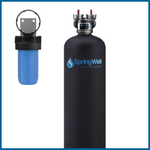 #1 SpringWell FS1 |
 #2 Kind E-2000 |
 #3 Aquasana EQ |
 #4 SoftPro Elite |
 #5 Crystal Quest |
 #6 GreenWave |
|---|---|---|---|---|---|---|
| Rating | 5/5 | 4.5/5 | 4.5/5 | 4.5/5 | 4.5/5 | 4.5/5 |
| Price | $$$ | $$$ | $$ | $$$ | $$$ | $$$ |
| Process | TAC | TAC | NAC | NAC | TAC + Multi-stage | NAC (Filtersorb SP3) |
| Max Hardness | 81 GPG | 75 GPG | 25 GPG | 17 GPG | 25 GPG | 81 GPG |
| Prefilter Included | No | Yes | Yes | Yes | Yes | No |
| Flow Rate | 12–20 GPM | 15 GPM | 7 GPM | 12 GPM | 12 GPM | Up to 25 GPM |
| Bluetooth | ✔️ | ❌ | ❌ | ❌ | ❌ | ❌ |
| Warranty | Lifetime | 5 Years | 6 Years | Lifetime | 1 Year | Lifetime (tank), 5–10 Years (media) |
| Best For | High-hardness city water | Hands-off scale control | Budget-friendly city use | Practical, compact setups | Well water + filtration | High-flow, high-hardness homes |
🛠️ Buyer’s Guide
Hard water’s one of those problems most homeowners don’t think about—until it shows up as scale in your pipes, spots on your glassware, or a water heater that gives out way too soon.
Salt-based softeners have long been the standard fix, but they’re not for everyone. Between the salt, the backwashing, and the maintenance, it’s easy to see why many homeowners are looking for simpler alternatives.
That’s where salt-free conditioners come in. These systems don’t remove minerals—they change how they behave. This helps you cut down on scale — without adding more upkeep.
Still, not every no-salt system lives up to the marketing. Some work great. Others… not so much. And if you’re on a private well, you’ll want to pay even closer attention. Well water brings a different set of challenges that some systems just aren’t built to handle.
This guide skips the hype and gets into what actually matters. You’ll learn:
And how to choose a system that solves your problem—without overspending
- How these systems actually work
- Which types of water they’re best suited for
- What to avoid if you’re using well water
🧠 How We Picked
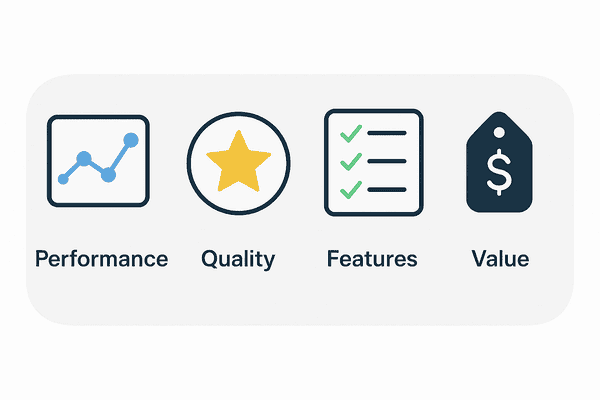
Most salt-free conditioners promise the same thing — less scale, no salt, and fewer headaches. But in practice, not all of them live up to the hype.
Instead of just comparing specs and brochures, we looked for systems that actually improved life at the tap. We weighed what owners noticed after install, how easy the system was to live with, and whether scale really slowed down where it matters — like fixtures, appliances, and pipes.
Every model on our list passed a simple test: would we recommend it to someone we know?
| 🔍 Evaluation Area | What We Looked For |
|---|---|
| Real-World Results | Evidence of visible scale reduction over time — not just manufacturer claims. |
| Flow Rate & Pressure | Minimum 10 GPM flow to prevent performance bottlenecks in multi-bathroom homes. |
| Build Quality | Tank durability, pre-filter materials, and valve simplicity — especially for DIY setups. |
| Ease of Maintenance | Minimal media replacement, clear service windows, and systems that don’t require electricity or drain lines. |
| Customer Support | Warranty transparency, ease of part replacement, and how brands handle issues post-sale. |
| Water Source Compatibility | How well the unit performs on city water vs. well water, and whether it tolerates iron, chlorine, or sediment without pre-filtration. |
💡 Pro Tip: Systems with fancy digital heads or bells and whistles often fail where it matters most — water pressure and longevity. We favored low-maintenance, high-impact designs that don’t need software updates or regular babysitting.
💧 Start With a Water Test
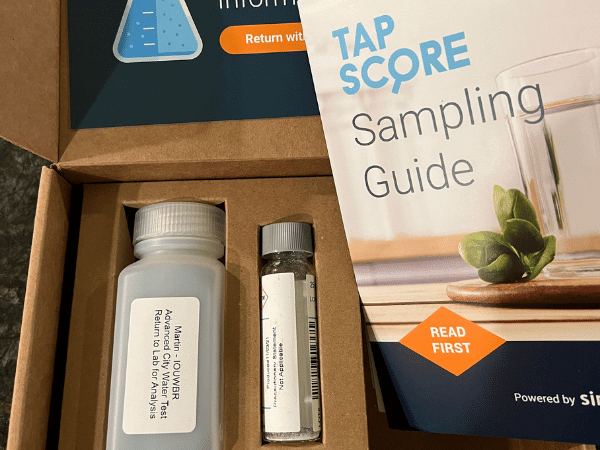
Before you choose a conditioner, you need to know what’s actually in your water.
Many homeowners assume they have a hardness problem — but the real issue could be chlorine, iron, sediment, or even bacteria. A salt-free system won’t help if the core problem isn’t scale.
That’s why a water test isn’t just helpful — it’s a must. It tells you:
- Your exact hardness level (in grains per gallon or ppm)
- If you have additives like chlorine or chloramine
- Whether your water has iron, sulfur, or sediment that could foul your system
- If you’re on a well, it can uncover issues like manganese or pH imbalance
👉 See Our Top Water Testing Kits — we’ve reviewed lab-based and at-home options so you can get clear answers fast.
Pro Tip: Some conditioner warranties require proof of compatible water chemistry. A quick test now can save you from headaches later.
🔎 What Water Conditioners Actually Do

Salt-free conditioners don’t remove minerals — they change how those minerals behave.
Instead of yanking calcium and magnesium out of the water like salt softeners do, they crystallize them into a form that doesn’t stick to pipes, fixtures, or heating elements.
🧊 The result? You keep the minerals, but scale buildup slows dramatically — and your appliances thank you.
| ⚙️ Tech Type | How It Works |
|---|---|
| TAC (Template Assisted Crystallization) | Uses polymer beads to change mineral structure, preventing adhesion to surfaces |
| NAC (Nucleation Assisted Crystallization) | Crystallizes minerals through flow turbulence or surface contact — similar outcome to TAC |
| SP3 Media | A proprietary variant of NAC — widely used for high-flow or commercial setups |
💡 Good to know: These systems don’t use salt, backflushing, or electricity — which makes them ideal for drought zones, salt-restricted municipalities, or anyone done with hauling 40 lb bags of pellets. Just remember: you won’t get that slick “soft water” feel, but your fixtures and glassware will stay cleaner longer.
⚖️ Are They as Effective as Salt Softeners?

Salt-free conditioners and salt-based softeners aim for the same outcome — less scale, longer-lasting appliances, and better water efficiency. But they get there in totally different ways.
Softening removes minerals. Conditioning just changes them.
That difference matters, especially if you’re expecting slippery “soft water” or trying to solve serious hardness issues.
| 💧 System Type | What It Does | Best For |
|---|---|---|
| Salt-Based Softeners | Pull calcium & magnesium out of water using ion exchange and brine flushing | Very hard water, silky feel, high-iron well water (with pre-treatment) |
| Salt-Free Conditioners | Reform minerals into crystals that don’t stick to pipes or fixtures | Moderate municipal hardness, low-maintenance needs, salt restrictions |
🧠 Take Note: Salt-free systems won’t eliminate hardness minerals — they neutralize them. That means you won’t see a drop in water hardness on a test strip, but you will notice less scale buildup over time.
🧠 Who They’re Best (and Worst) For

Salt-free systems aren’t one-size-fits-all. They’re great for the right conditions — and underwhelming in the wrong ones. The key is knowing when “conditioning” is enough… and when full mineral removal is necessary.
Here’s who stands to benefit most — and who might want to keep looking:
| 👍 Best For | 👎 Not Ideal For |
|---|---|
| Homes with municipal water | Homes with well water containing iron or sulfur |
| Moderate hardness levels (below ~15 GPG) | Hardness levels over 25 GPG |
| People who want less maintenance | Households that expect soft-feeling water |
| Homes under salt discharge bans | Anyone trying to filter chlorine or chemicals |
| Eco-conscious buyers avoiding salt & waste | Households with 3+ bathrooms and limited flow rate |
💡 Pro Tip: If you’re not sure where your water stands, test it first. That’ll tell you whether a salt-free conditioner will work on its own — or if you’ll need a softener or pre-treatment to tackle things like iron, chlorine, or extreme hardness.
💧 How to Tell If You Have Hard Water

Most people don’t realize they have hard water until the symptoms pile up — cloudy glasses, stiff laundry, itchy skin. While the signs are subtle at first, they show up all over your home.
| ⚠️ Common Signs | What They Usually Mean |
|---|---|
| White spots on dishes or shower doors | Calcium deposits drying on surfaces |
| Soap doesn’t lather easily | Hard minerals are interfering with cleaning agents |
| Skin feels dry or tight after showers | Hard water is leaving a mineral film on your skin |
| Appliance breakdowns (especially heaters) | Scale buildup reduces efficiency and lifespan |
| Faded, stiff laundry | Minerals lock into fabric and dull detergent performance |
🚿 Pro Tip: If your city provides an annual water quality report, check for “hardness” measured in GPG (grains per gallon) or ppm. Anything over 7 GPG is considered hard — and may justify a conditioner or softener.
🔍 Key Features to Look For
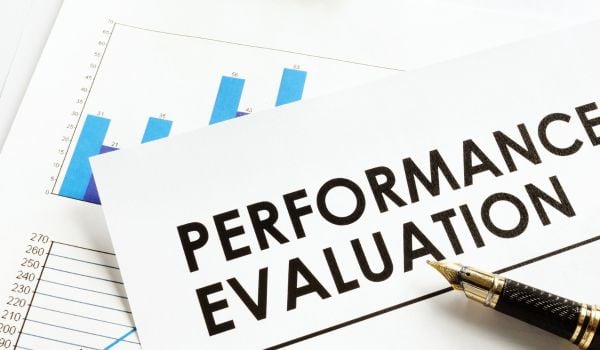
Salt-free conditioners may seem simple on the surface, but a few key features can make or break their real-world performance. Before you commit, look beyond the label and check what the system actually offers in day-to-day use.
| ⚙️ Feature | Why It Matters |
|---|---|
| 🔁 Media Type | Look for proven tech like TAC, NAC, or Filtersorb SP3. These physically alter mineral structure — not just trap or mask it. |
| 🚿 Flow Rate | Measured in GPM (gallons per minute). If you’ve got multiple bathrooms, aim for 10+ GPM to avoid pressure drops. |
| 🧃 Pre-Filter Included | Stops sediment from clogging media early. Saves money and improves performance over time — especially on city water. |
| 🔩 Install Type | Some are DIY-ready, others require pro install to preserve the warranty. Know what you’re signing up for. |
| 📦 Replacement Timeline | Even “lifetime” systems may need media swap after 5–10 years. Check how often — and how much it costs. |
| 🛠️ Warranty Coverage | Warranties range from 1 year to lifetime. The best ones cover both tank and media — and don’t void on DIY setups. |
📌 Good to know: Some systems seem cheaper upfront because they leave out essentials — like pre-filters or mounting hardware. Always check what’s in the box so you’re not surprised later.
🧪 Understanding TAC vs NAC vs SP3
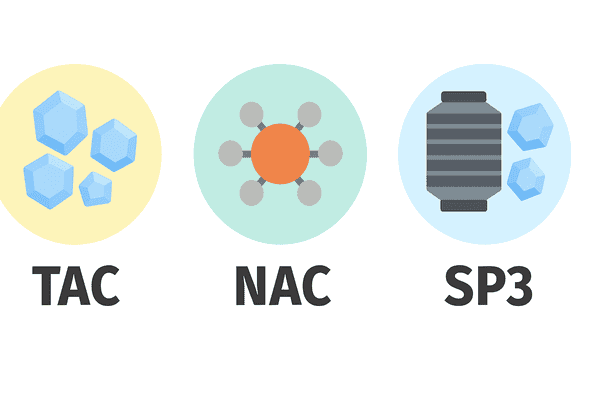
Not all salt-free systems use the same method to treat hard water — and that matters. The media inside your system determines how well it handles scale, how long it lasts, and whether it’s compatible with your water supply.
Some rely on crystal formation (like TAC and SP3), while others use catalytic surfaces (like NAC). Each has strengths — and trade-offs.
| ⚙️ Media Type | 💧 How It Works | 📈 Best For |
|---|---|---|
| TAC (Template Assisted Crystallization) | Converts minerals into microscopic crystals that can’t stick to surfaces | City water with moderate to high hardness (up to ~80 GPG) |
| NAC (Nucleation Assisted Crystallization) | Uses a catalytic core to convert calcium into harmless particles | Municipal water under ~25 GPG; compact systems with filters |
| SP3 (Filtersorb SP3) | Premium German media that crystallizes minerals with high flow tolerance | Large households or extreme hardness areas; minimal pressure loss |
💡 Take note: If you’re dealing with serious scale or running 3+ bathrooms, SP3 is often the safest bet. It’s more forgiving under pressure and in borderline water conditions. NAC works great too — just make sure it’s paired with a solid pre-filter for best results.
🧠 Common Mistakes to Avoid
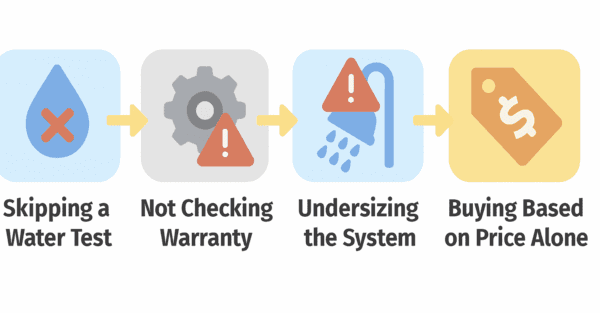
Salt-free conditioners can be great — if you choose the right one and set it up properly. But many homeowners expect too much, skip testing, or install without understanding what these systems actually do. Here’s where things often go sideways:
| Mistake | Why It’s a Problem |
|---|---|
| ❌ Skipping a water test | You might be treating the wrong issue — or installing a conditioner on water that’s not a good match (like high iron or low pH). |
| 🔩 DIY install without checking warranty | Some brands (like Aquasana) require pro installation for warranty coverage. Skipping this step could leave you on the hook later. |
| 🚿 Undersizing the system | If your home has 3+ bathrooms, flow rate matters. Undersized units cause pressure drops and unhappy mornings. |
| 📦 Buying based on price alone | Cheaper systems often skip prefilters or use less effective media — and may need replacing much sooner. |
| 💧 Expecting a “soft water” feel | Salt-free systems don’t give you that silky feeling. If that’s a must-have, a salt-based softener is a better fit. |
📍 Take Note: Just because a conditioner is “rated up to 75 GPG” doesn’t mean it thrives there. If your water’s extremely hard, performance can still vary depending on media type and flow demand.
🔎 How to Compare Models

Not all salt-free conditioners are created equal. Some are bare-bones scale reducers, while others bundle in pre-filtration, flow control, or premium media. Here’s what to look for when you’re deciding between options:
| Feature | Why It Matters |
|---|---|
| 🌀 Media Type | SP3 and TAC media have the strongest third-party backing. If the media isn’t named, it’s probably private-label and untested. |
| 🧃 Pre-Filter Included? | Having a pre-sediment filter out of the box can save you time and protect the media from clogging early. |
| 🚿 Max Flow Rate | More bathrooms = more GPM needed. Anything under 10 GPM might struggle in mid-size homes. |
| 📦 Replacement Cycle | Some media lasts 10+ years. Others need subscription refills every 6–18 months. Know the cost of upkeep. |
| 🛠️ Warranty Terms | Look for lifetime coverage on tanks and at least 5 years on media. And check whether pro install is required to keep it valid. |
🧭 Pro Tip: If a system looks too good to be true on specs and price, double-check the fine print. Many budget units quietly exclude filters or underdeliver on flow — especially for well water.
🏅 Certifications
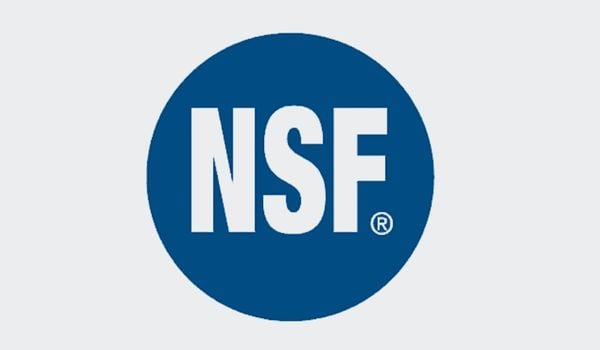
Salt-free conditioners don’t fall under the same certifications as salt-based softeners — but that doesn’t mean you’re flying blind. The right seals can still tell you a lot about a system’s safety, structural integrity, and media performance.
| 🔖 Certification | What It Tells You |
|---|---|
| NSF/ANSI 61 | Confirms the system’s components (like tanks, fittings, seals) won’t leach harmful materials into drinking water. |
| NSF/ANSI 42 | Validates that filter media is structurally sound and won’t degrade or break apart in typical residential use. |
| DVGW W512 | A German standard for scale prevention. Systems must prove at least 80% scale reduction under lab conditions. |
| WRAS | A UK certification showing the system is safe for use with potable water and built to last under pressure. |
🧠 Worth knowing: Many brands claim they meet these standards, but not all are certified. Look for actual logos — not just wording like “NSF-compliant.” If you can’t verify it on the manufacturer’s site or the NSF database, take it with a grain of salt (pun intended).
🛠️ Installation Cost & Maintenance

Most salt-free systems are easier and cheaper to install than salt-based softeners — no drain line, no power, and no programming. But that doesn’t mean there’s zero effort or long-term cost. Here’s what to expect:
| 💰 Item | What to Expect |
|---|---|
| System Cost | Usually $700–$2,000. Premium units cost more but often include pre-filters or longer-lasting media. |
| DIY Install | Possible with basic plumbing knowledge. Most connect with standard fittings and don’t need special tools. |
| Pro Install | Typically $300–$600, depending on your layout. Still cheaper than salt-based setups that need drains and power. |
| Media Replacement | Usually every 5–10 years. Costs vary — budget $200–$800 depending on media type and tank size. |
| Pre-Filter Changes | If included, plan on swapping sediment filters every 6–12 months (~$30–$50/year). |
🔄 Pro Tip: If your system uses long-life media like Filtersorb SP3 or high-quality TAC resin, you can usually go 5+ years with zero hands-on maintenance. Just don’t forget the sediment filter — neglecting that shortens media life fast.
🧠 Final Thoughts
Salt-free conditioners won’t give you soft water in the traditional sense — but they can stop scale from silently wrecking your plumbing and shortening your appliance lifespan.
They’re not for everyone. But if your water is moderately hard and you’re on city supply, these systems can strike a great balance: less maintenance, fewer headaches, and no salt to buy or drain to plumb.
- ✅ Start with a water test — it’s the only way to know what you’re really dealing with
- ✅ Stick with proven tech like TAC or SP3 — they’ve been vetted in real homes
- ✅ Match it to your setup — check flow rate, household size, and install space
- ✅ Look for real certifications — not just vague claims or buzzwords
And if you’re still on the fence, check out our comparison table above — it’s a fast way to see what fits your home best.
 102 people found this helpful. Was this guide helpful to you?
102 people found this helpful. Was this guide helpful to you? 
